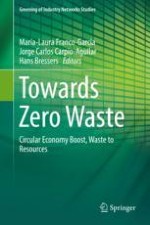2019 | OriginalPaper | Buchkapitel
8. Incorporating Circular Sustainability Principles in DKI Jakarta: Lessons Learned from Dutch Business Schools Management
verfasst von : Juli Nurdiana, María-Laura Franco-García, Sharon Hophmayer-Tokich
Erschienen in: Towards Zero Waste
Aktivieren Sie unsere intelligente Suche, um passende Fachinhalte oder Patente zu finden.
Wählen Sie Textabschnitte aus um mit Künstlicher Intelligenz passenden Patente zu finden. powered by
Markieren Sie Textabschnitte, um KI-gestützt weitere passende Inhalte zu finden. powered by
